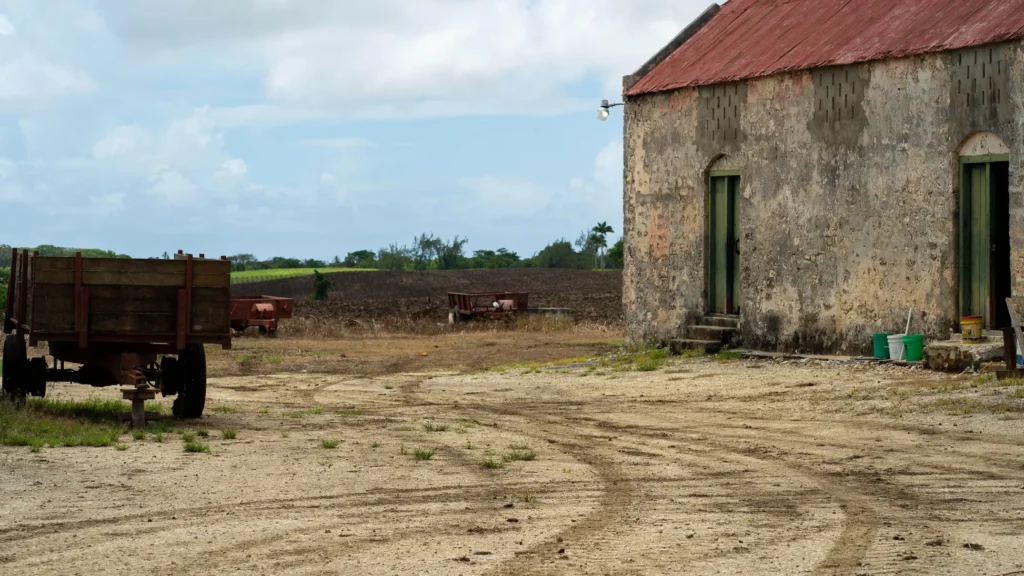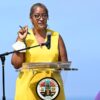Barbados echoes loudly, championing compensation for the haunting legacy of slavery. An ABC article has noted that the past decade has witnessed a shift from sidelined discussions to central dialogue, with Barbados emerging as a pivotal force in this narrative.
David Comissiong: A voice ahead of his time
In the neon days of the early 90s, young lawyer David Comissiong championed the cause for reparations. Then labeled a “dreamer”, today he sits as the deputy chair of Barbados’ national task force on reparations.
Established in 2012, this task force strives to shape the government’s stance on reparations and rally public momentum. It operates under the keen eye of Prime Minister Mia Mottley, herself an avid proponent of the cause on a global scale.
Caribbean solidarity: A unified call
Barbados is not alone. Nations like Jamaica, Haiti, Belize, Guyana, and the Bahamas have followed suit, establishing their respective task forces.
In a collaborative effort in 2013, these Caribbean nations unveiled a regional commission to engage European countries in a reparations dialogue.

More on call for reparations in the Caribbean
The cost of Europe’s development
According to ABC, Comissiong asserts that “Europe’s development was purchased at the price of the underdevelopment, of the looting and plundering of our people,
Reparations signify more than monetary compensation. It embodies the need to mend centuries-long damages.
Caribbean nations advocate for support in public health and literacy initiatives. While some European nations acknowledge their roles, others remain adamant in their refusal.
The legacy of colonialism and Barbados’ awakening
The Black Lives Matter movement of 2020 sparked a broader reckoning in Barbados. Symbols of colonialism, like the statue of Horatio Nelson, were dismantled.
Spoken word artist, Cyndi Celeste, highlights these events as critical in reinforcing Barbados’ unique identity. The transition from “Little England” to an independent republic in November 2022 echoed a renewed quest for identity.
Barbados: The blueprint of slavery
The island’s dark history is deeply entrenched in the trans-Atlantic slave trade, with Barbados bearing the weighty title of “the first sugar island”.
The intricate systems of slavery, like the “slave code” and the slave management manual, “The Instructions”, had their sinister roots in Barbados. Their impacts were far-reaching, influencing regions and systems beyond the island.
Beneficiaries of slavery
Centuries-old fortunes built on the backs of slaves still ripple through generations.
Families like the Drax amassed considerable wealth through sugar and slavery. The British royals, too, had their hands dipped in the slave trade. When slavery was abolished in 1834, the compensation flowed into the pockets of slave owners, not the victims.
While institutions like the Anglican Church have recognized and apologized for their involvement in slavery, questions remain about the adequacy of these gestures.
Comissiong points out that moral questions are now directed at the British government.
British royals and notable figures reckon with the past
Emerging reports suggest that the British royal family is moving closer to addressing the topic of reparations. The late Queen Elizabeth II’s successor, King Charles III, did not hold back, denouncing it as an “appalling atrocity.”
Further highlighting the monarchy’s introspective move, he commissioned an in-depth study to explore its historical connections to the slave trade.
ABC reveals that it is not just the royals reflecting on their past. Some prominent British families have already made voluntary reparations.
A case in point: In 2021, British philanthropist Bridget Freeman generously contributed $780,000 to the University of the West Indies upon uncovering her family’s ties to Barbadian slave owners. Similarly, BBC journalist Laura Trevelyan, after discovering her ancestors owned over a thousand slaves in Grenada, made amends with a substantial payment of $972,000.
The reparations task force in Barbados has proposed that estates like Drax Hall be transformed into memorials for slavery, offering a space for reflection and communion with ancestors.
They symbolize a tangible piece of a harrowing past and could serve as a testament to the island’s commitment to healing and remembrance.
The latest news from Barbados & The Caribbean
Read more articles about Barbados from Caribbean National Weekly





